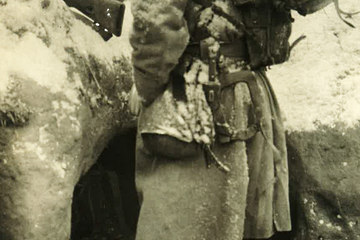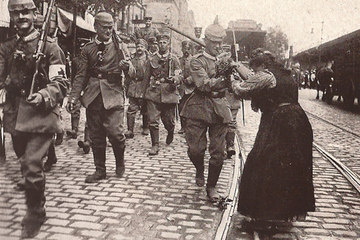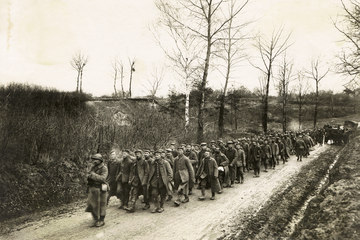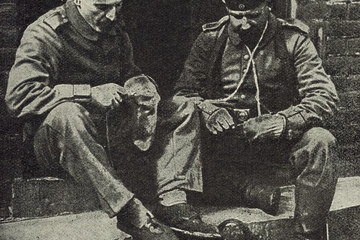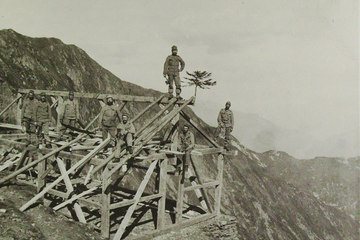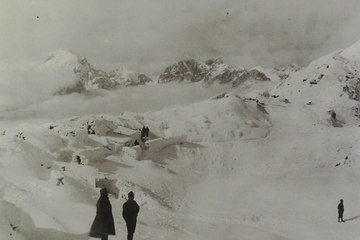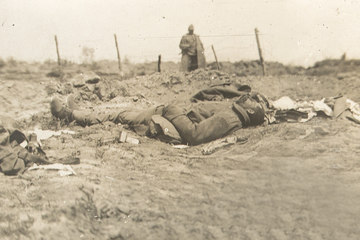Soldiers on the Fronts in the First World War
In the late 1970s the American historian and diplomat George F. Kennen called the First World War the “great seminal catastrophe”. [Kennan: The Decline of Bismarck's European Order, 1979].
Even one hundred years after its outbreak, the Great War, as it is still named today in many countries, stands not only for a new kind of warfare but above all for a previously unheard of scale of destruction and violence. Hidden behind the immense number of victims the war brought with it are countless individual stories and experiences of soldiers for whom the First World War meant a drastic caesura that reverberated beyond the end of the war. High-technology warfare waged with mass armies put everything previously experienced in earlier military conflicts into the shade. Everyday life in the war involved hours and hours of artillery fire, poisonous gas attacks, lingering for days in the trenches and caverns, likewise mud and cold, wounds and losses, plundering and violence against the civil population, hunger cold, dirt and lice.
Translation: Abigail Prohaska


